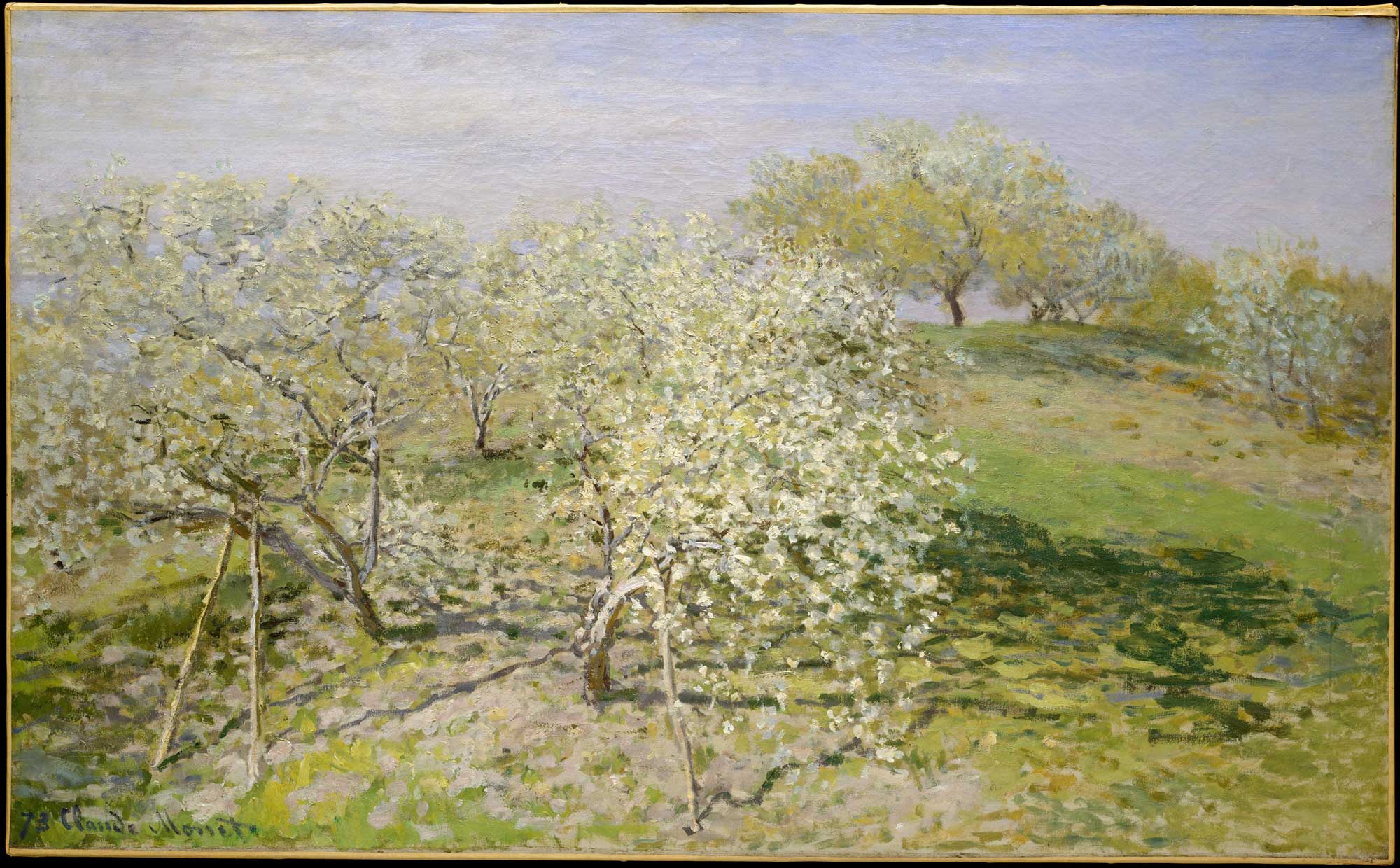When one surveys the landscape of public discourse, exasperation is often the most appropriate response. Political rivals seem more interested in hurling philippics at each other than debating society’s most urgent questions. Imperious sneering at adversaries’ weakest arguments is the defining posture of the day.
Amid the cacophony of today’s disjointed discourse, there are a few magazines with modest circulations but hefty intellect that offer a refreshingly countercultural approach to public dialogue. In November 2020, The Point magazine published its inaugural anthology of essays, The Opening of the American Mind, selected from 2010 to 2020. Founded in 2009, The Point pins this pithy but lofty self-description: “A magazine founded on the suspicion that modern life is worth examining.” The Opening is a book well worth reading—not just because it’s a delightful snapshot of The Point’s intellectual dexterity, but also because it offers a window into the political significance of the small-magazine project in general.
Other publications that I would classified alongside The Point, though each with its distinct tone, are: The Hedgehog Review, which has no discernable political leaning but aims to understand and propose remedies for the malaise of the modern age; Plough, a Christian magazine that tilts left sans political zeal, preferring to ask “the big questions”; most recently, The Lamp, which touts “consistent undiluted Catholic orthodoxy” and publishes a rich banquet of content. Of course, other high-caliber publications fit the bill too: National Affairs, The New Atlantis, Mere Orthodoxy, Comment, and plenty more.
The unifying feature of these publications is, I think, that they betray the intellectual habits of minds liberally educated: philosophically nimble engagement with the chosen material; detachment from ideological and partisan argumentation; and, above all, desire to understand the truth of the matter at hand. By humanistic, I do not refer to the philosophical movement called “humanism,” but to the liberal arts, which (roughly speaking) are disciplines focused on the basic questions of existence. As Jon Baskin and Anastasia Berg, the editors of The Opening, point out in their introduction, The Point’s intellectual project bears striking resemblance to the goals of humanistic education. They observe that, over the course of a lifetime, everyone inevitably confronts reality’s labyrinth of philosophically fraught choices: “what to eat, where to work, how to vote, whom to love or what to worship.”
The Opening greets its readers with a bracing assortment of essays. Authors bring liberally educated tenor to a broad range of issues: race, #MeToo, today’s literature, right-wing neo-reactionary politics. Describing their vision for The Point, Baskin and Berg write, “To create a public space that could do justice to the adventure of the American mind—in its full diversity and vitality—meant allowing our writers to go wherever their experience would take them.” They continue, “It meant publishing liberals and conservatives, philosophers and activists, Marxists and Catholics, New Yorkers and Midwesterners.”
The Point’s general tone is intellectually self-aware and hospitable to sound thinking from politically various voices, a trait it shares with other humanistic publications. In his essay “Tired of Winning,” Baskin describes his life working in communications for a progressive think tank. Working there meant you were “on the side of reality” and that “there were no questions, only answers.” His job required him to “package those answers as appealingly as possible” and “exist completely within the confines of this self-congratulatory stupor.” Partly driven by his distaste for such work, Baskin then recounts his discovery of new and intellectually serious leftist magazines: N+1, Jacobin, Baffler, and others. But he quickly realized that even these magazines, however probing, were limited to the confines of their ideological horizons. For the most politically die-hard publications, the intellectual’s job is merely to “aid the activist” because “writing just is a form of messaging.”
The Point, on the other hand, attempts “to conduct a conversation about modern life that includes but is not limited by political conviction.” Baskin continues, “Our political conversation today suffers from hardly anything so much as a refusal of anyone to admit the blind spots and weaknesses of their ideas, the extent to which they fail to tell the whole truth about society or even about their own lives.” The Point grasps the inevitable intellectual limits of political argumentation. This awareness leads them to run pieces that are unconventional for mainstream intellectual publications—see, for example, a recent essay in which Cistercian monk and Catholic integralist Edmund Waldstein reflects on celibacy as a path to experience God’s love more deeply. Or Agnes Callard’s often zany but always edifying column.
Readers might wonder how Christian publications like Plough or The Lamp can participate in this humanistic endeavor if they bring prior theological commitments to their ideas. While it might seem that dogma is incompatible with intellectual openness, Christianity (when it’s truest to itself) embraces worldly wisdom in its full vibrance. In The Love of Learning and Desire for God: A Study of Monastic Culture, Jean Leclercq describes the tender affection with which medieval monasteries regarded secular sources of knowledge. Leclercq’s sparkling line captures their attitude: “The literature of this world can be an ornament of our souls as well as of our style, if we but know how to direct it to the worship of God.” Furthermore, intellectual openness does not demand total skepticism on all philosophical matters. During a recent book event for The Opening, Jonny Thakkar noted that The Point has no definitive political position, but seeks writing that is intellectually challenging. There are surely philosophical limits to what counts as challenging within contemporary discourse. Like The Point, Christian humanist publications eschew definitive political positions but, unlike The Point, embrace defined theological parameters—with delightful results.
So what’s special about the humanistic publications, Christian or not, if they cultivate the same intellectual virtues as liberal education? Are publications like The Point and The Lamp merely outposts or extensions of liberal education that simply reach different audiences? Not exactly. Unlike the academy, humanistic publications have a public mission as their primary focus. Academic work, particularly in the liberal arts, requires temporary suspension from everyday concerns and the political debates of the day. Elizabeth Corey has written in National Affairs that the disinterested attitude (an essential ingredient of liberal learning) “demands a quieting of the self and its interests in order to enter into the intellectual and moral worlds of other people who may be quite unlike us in terms of geography, history, and outlook.” Zena Hitz observes in Lost in Thought: The Hidden Pleasures of the Intellectual Life that the intellectual life involves total (if temporary) retreat from the world.
When academic work is truest to itself, it is not responding to the news, and it resists being politicized. Good academic work requires stepping away from the heat of contemporary debates. Peer-reviewed periodicals usually lack direct bearing on current events; they contribute to academic dialogue within segmented research havens. The primary goal of scholarly journals is not to inform public debate but to contribute to a highly specialized academic discussion. Of course, scholarly work is often pregnant with lessons for present-day political debates, and of course scholars themselves have political positions, but unless they are corrupt, scholars’ primary aim is not to inform public debate.
By contrast, Baskin and Berg write that The Point’s intellectual mission involves “leaving the library stacks—and every other enclave of settled opinion—and confronting the pandemonium of the American mind in its multiple manifestations: in contemplating and reading but also at work and at home, in love, in protest and at play.” The Point’s vision of the American mind “is not a mind bred in isolation to rule or instruct its fellow citizens but one driven out into the world by its curiosity.” The Point’s writers and editors receive simultaneous instruction from, on the one hand, worldly events and daily experiences, and on the other hand the great lineage of humanistic thought that dwells on reality’s fundamental, unchanging truths. The humanistic magazine converses with the world, sometimes offering guidance, other times listening—but its defining aim is to contribute to public discourse. It is a bridge, in a way, between the active and contemplative lives.
These dual reservoirs of the humanistic magazine generate a hybrid form of dialogue—one that doesn’t require temporary suspension of one’s political and philosophical commitments, as liberal learning does, but embraces them. But it embraces them in a way that is chastened by the very humanistic tradition that it draws from. As Berg and Baskin point out in the introduction, “The writers in this collection signal their opposition to the prevailing assumption that political commitment is incompatible with a desire for dialogue, self-reflection or self-criticism.” Yet humanistic magazines deploy the full intellectual excellence and humility that liberal learning instills. Such publications are the rare meeting ground where philosophical gaze and practical toil come to a truce and sit down for coffee.
In this way, humanistic journals have marvelous democratic potential. One can join a community of readers and writers without toils of enrollment, relocation, or unthinkable tuition. If, say, an aerospace engineer, rap legend, homemaker, or barista is too busy for full-time intellectual work, humanistic publications can nourish his or her mind during moments of leisure, however brief.
This intellectual practice is profoundly important for both public life and personal flourishing; and one of the things that the tradition itself implies is that these two are in fact linked. When someone reads a humanistic publication, her mind and spirit are fed by the deep wells of ressourcement while her practical reason is still engaged with public matters and the concerns of her political moment. The humanistic journal’s community of readers and writers consider political matters with utmost depth (entering into conversation with the great texts and thinkers of the past) and breadth (welcoming input from personal experience, their fellow citizens, and the contemporary social landscape). Baskin and Berg write, “Only through dialogue with our fellow citizens—only by continually opening ourselves to their criticism, instruction and difference—can we credibly claim to maintain an open mind.” Humanistic journals, clearly distinct from both unadulterated intellectual activity on the one hand and mere partisan punditry on the other hand, fulfill a peculiar social role.
At the heart of such publications, I think, is an unspoken belief that politics need not be a realm of pure power, but can sometimes obey reason and conform to truth and justice; that conversation, beauty, and friendship can be roots of political order. By infusing public debate with reflection and academic rigor, humanistic journals attempt to both learn from and elevate political discourse beyond itself—pushing politics past its natural cycles of cynicism. The publications actively test the question posed by Alexander Hamilton’s Federalist 1 about whether polities can be guided by “reflection and choice, or whether they are forever destined to depend for their political constitutions on accident and force.” Jonny Thakkar remarked during The Opening book event that, in The Point’s early years, the editors realized they needed to defend two related ideas at the heart of the magazine’s mission. The first, he said, is “that intellectual life didn’t always have to be disciplined to political ends.” The second is that “political life can be enriched by genuine intellectual exploration.”
The uncomfortable truth about humanistic publications is that, despite their democratic potential, they remain stubbornly niche. It can be hard to see how political life is “enriched” by humanistic publications if few people read them. But a crucial rejoinder can be culled from The Point’s capacious intellectual project. A defining trait of small humanistic publications is that they are free from political missions. Even as they study the “pandemonium of the American mind,” their aim isn’t to democratize the intellectual life, if that means to persuade massive numbers of people that what they really want to be doing is reading essays by Cistercian monks. Rather, as noted above, it is to cultivate intellectual sobriety for readers who crave it, even when popular taste prefers scornful takedowns. And that sobriety can through these journals become available to those who are not college educated, or (as The Point staff member and author Joseph Keegin has described) who have complicated relationships to the world of academia, as well as those whose membership in the guild is more straightforward.
In the readership of these magazines, in the events that they offer, even (at least occasionally) in the Twitter threads about the pieces, those who want to be part of a conversation like this can find each other. Amid an intensely polarized era, when more and more of life becomes politically sorted, humanistic publications’ committed readership reveals a stubborn urge to find wisdom. As Adam Keiper recently noted, magazines do what Substacks cannot: “With strong editorial leadership, a magazine can lift writers to produce better work than they could on their own and can help readers learn things they did not already know they cared about.” Their audiences may be small, but the sense of wonder that lives on their pages resonates with an unchanging part of the human spirit.
Humanistic publications offer philosophical and literary texture to reality’s inevitable moral complexity. Becca Rothfeld recently wrote in Liberties journal about “sanctimony literature,” a perfect inverse of the writing cultivated by the humanistic magazine. The defining mark of sanctimony literature is its barren moral imagination, wherein virtue resides exclusively on the political plane. The height of sanctimony literature’s ethical drama involves unintended self-caricature: outspoken communists, activists attending ICE protests, rants about capitalism’s universal destruction, and so on. What sanctimony literature fails to do is what the humanistic magazine achieves: in Rothfeld’s words, “the intellectual excitement of trying to answer the exceedingly complicated question of what a morally serious person should be like.” Humanistic publications eschew juvenile portraits of the moral life, whether progressive or conservative, and instead prefer to plumb the depths of the human heart and the strange world we live in. These publications have dared to seek illumination amid the flux of confusion that no ideology can adequately paper over. For those unsated by trite fiction and pandering commentary, the humanistic publication promises abundance.
It’s unclear whether the state of discourse today is worse than it’s ever been. The shift to digital communication seems to have deteriorated dialogue by abbreviating it and incentivizing factionalization. At best, social media mirrors the dismal state of debate, unflattering as it is. If America’s social order continues to careen down such a path, it would be difficult not to conclude that “accident and force” are the governing principles of our politics. But humanistic journals offer a third way, not sealed off from politics, nor mired in partisan bickering. So long as publications like The Point have a stake in discourse, there is reason to hope in our public life.





